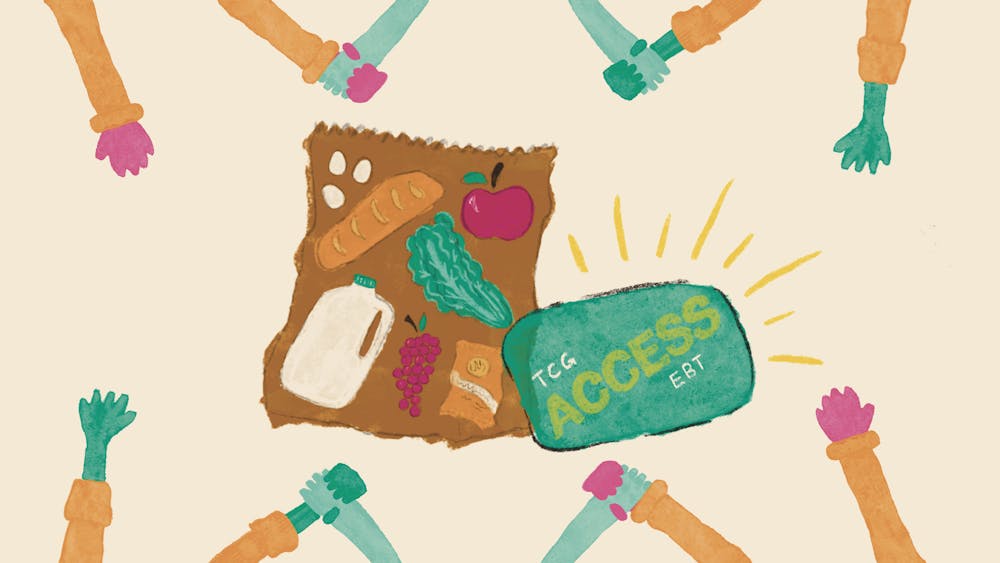Three winters ago, Eli Moraru (C ‘22) and Alexandre Imbot (C ‘20) stood on a street corner not far from campus. They weren’t alone, waiting along with the lucky company of a few hundred USDA food boxes.
But nobody wanted their apples, chicken, onions, and cheese. Cars sped by with kids piled in back, arms hanging out the windows, and seatbelts nowhere to be found. No matter how widely Eli and Alex smiled, no matter how helpful their partners from the Resident Action Committee 2 (RAC2) were, the people of the neighborhoods of Grays Ferry and Tasker–Morris—only 1.3 miles from Penn—didn’t want what they had for them. Despite most of them being on food stamps, receiving more from the government didn’t appeal to the people on the other side of the street.
But, Eli and Alex wondered, if they needed government help to buy these exact ingredients, why didn’t they want them? And so, The Community Grocer (TCG) was born.
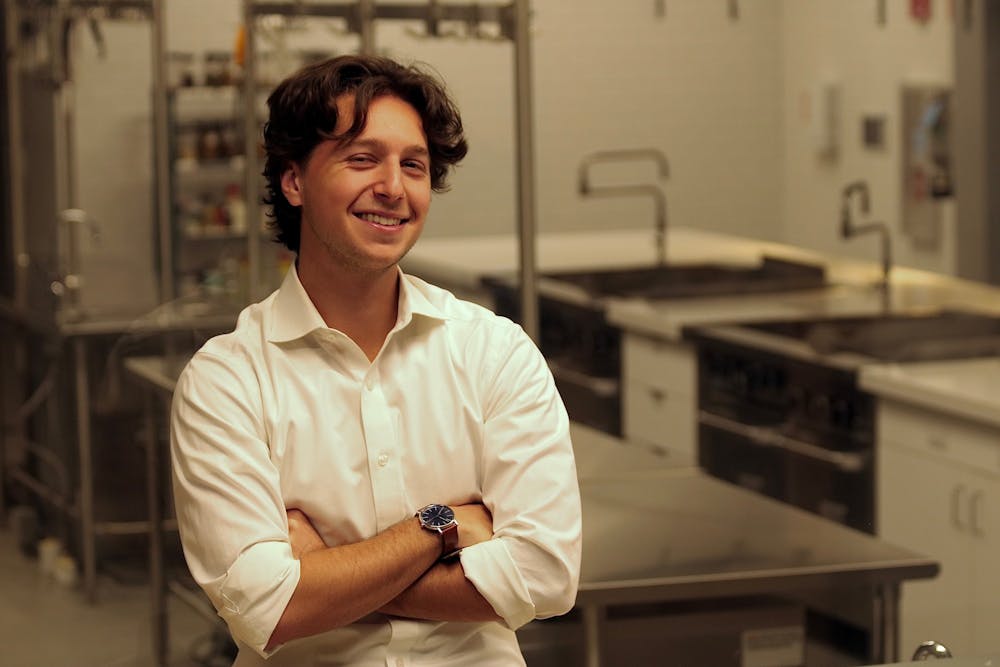
Eli Moraru | Photo Courtesy of Eli Moraru
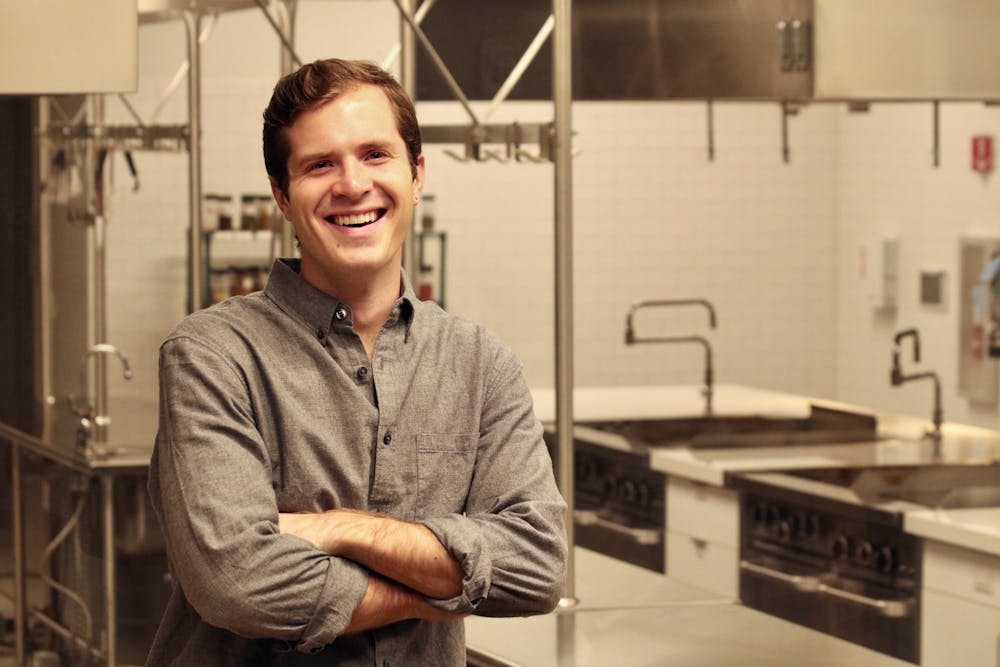
Alexandre Imbot | Photo Courtesy of Alexandre Imbot
“Our first question was: What are people’s relationships with their food stamps?” Alex says. Why were people frequenting the corner stores that only sold chips and soda? The two friends began talking to anyone who would respond. “We investigated public data and found that most of the neighborhood was considered a food desert,” Eli explains. 90 percent of the people in the area wanted healthier food options but were met with too many obstacles to find the food they needed. “They didn’t cook, didn’t have the time, or didn’t even have working kitchens. There were so many reasons why they couldn’t use fresh ingredients, no matter how easily or cheaply they could be found,” Eli says. They needed everything ready to go. So Eli and Alex embarked on their journey: to provide hot, healthy, and accessible meals to everyone who needed them.
The Washington, D.C. natives realized that almost everyone there had EBT cards. “Almost 2,500 individuals had food stamp cards, and that wasn’t even including the families who had them, too,” Eli says. They reached out to Harvard Food Law and Policy Clinic to figure out how to use food stamps to pay for and make the hot, healthy meals that were so needed.
They found a solution: Why couldn’t they design a store where the front part sells meal kit ingredients and the back part, or the area right next door, is where someone can prepare said meal? What you receive is your recipe, and you only need to take a few steps before it’s cooked to perfection. Eli and Alex wanted to create a community kitchen, run by a local nonprofit, designed to cook the meals people are bringing them—the meals TCG sells. “And that’s radical in this country,” Alex sighs.
“Within the existing operational footprint of the traditional corner store,” Alex says, “we repurposed the layout to meet the federal requirements of a retailer.” Over half of their inventory had to be staple items in order to utilize food stamps, which practically meant just checking off the different sections of the all–too–famous food pyramid from those middle school days. “For a corner store, if you really just want to push Doritos and Pepsi, then you only need to have a few cans of peas, sausages, and corn that never go bad and are always for sale hidden away in a corner,” Alex explains. After seeing how so many other places were able to skirt the rules, Eli and Alex decided to push their luck navigating the loopholes as well.
“Everywhere I look in Philly there’s opportunity for improvement,” Alex says. “As a country, we throw away one–third of our food. To tell me that we can’t provide access to healthy food to everyone … I’m not going to take that,” he says. “Fighting food insecurity in Philadelphia has been really stagnant,” Eli continues. With so much money being thrown at solving this issue, the solutions have stayed the same: Soup kitchens and handouts won’t work for much longer. “People want an empowering dining experience, and when someone’s pride is the last thing they have, they don’t want to get in line for their next meal of the day,” he says.
One–third of Philadelphians will be receiving food stamps this year, and “it’s just bonkers,” Alex says. There are more food stamps than ever in the United States but not enough places where people can spend them. “It just took a new perspective to see that we’re doing something wrong here, and I don’t think either of us are geniuses, but we were there to ask some questions and then work to find the answers,” Eli says. “Allowing customers to retain their pride is absolutely critical to their experience,” Alex says. “We’re providing the agency and accessibility to people to be able to eat better at a cheaper price,” Eli adds.
It doesn’t come easily, though. Real estate problems pop up everywhere they look. “There is no commercial space anywhere,” Alex says. Fundraising and planning become that much more difficult when these densely populated neighborhoods block the road to building TCG up to its potential. “These neighborhoods were built so there would be no economic flow in there,” Eli says. “They’re reliant on outside places to spend their money, and so no wealth has accumulated within the community.”
But community, as the name suggests, is at the core of everything TCG stands for. Everything is by the community and for the community, with familiar faces at every step of the way. “Nothing is extracted to Frito–Lay or Walmart. Those extra dollars stay here and go back into youth programming, nutritional education, and financial planning,” Alex says.
It takes an army to reimagine nutritional systems in the way Eli and Alex want to, and they make sure to tackle their goal both inside and outside the kitchen. Beyond the logistics of running TCG, Eli and Alex also make the effort to join the community on a personal level. “We’ve spent Father’s Days and Thanksgivings within their communities, and we wouldn’t want to have it any other way,” Eli says. “We plan on holding cooking classes in the store on the weekends and bringing personal trainers into the park to teach the kids, ‘Hey, this is what it means to work out to be healthy, and it’s fun,’” he says. As we talk, Alex reminds Eli about the sports leagues they’re attending soon. “Catch us reffing in the zebra stripes and whistles,” he laughs.
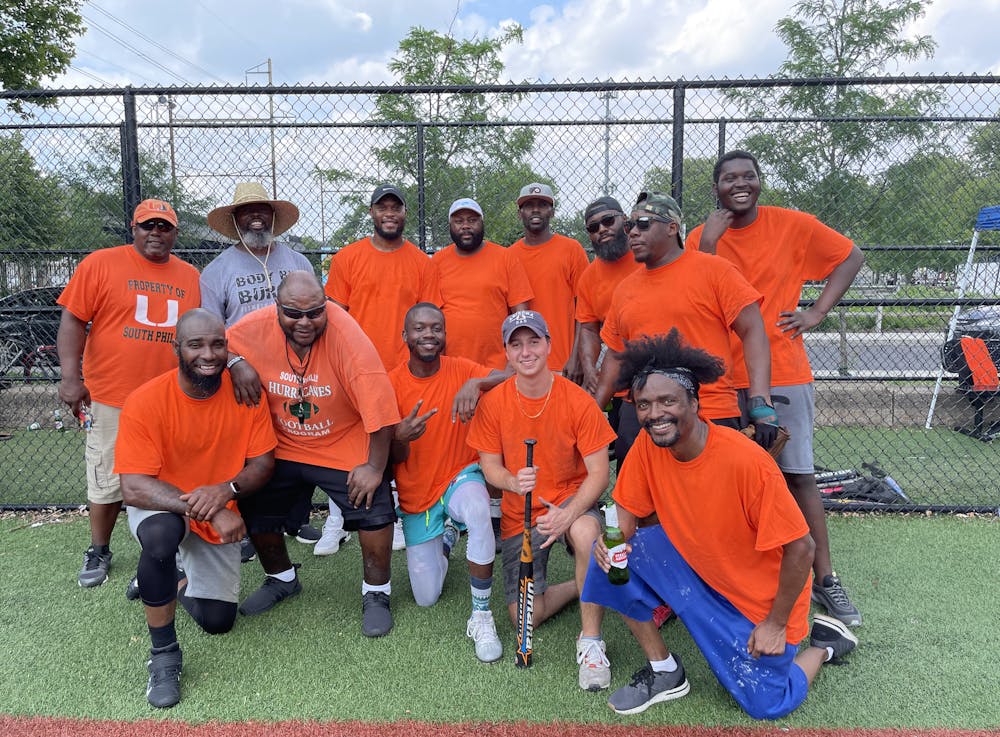
Photo Courtesy of Eli Moraru
Recently, Alex and Eli led a trip, along with RAC2, that brought kids from the community to Washington, D.C. to visit the African–American History Museum and try some neighborhood food trucks to experience certain foods for the first time. “Hearing the kids say, ‘Eli, street corn is amazing!’ is great, because we get to give these kids new experiences in a new place, helping them do something they’ve never done before,” Eli says. “Obviously our main model is TCG and nutritional assistance, but that doesn’t mean we can’t work for the community until it’s officially up and running,” he explains.
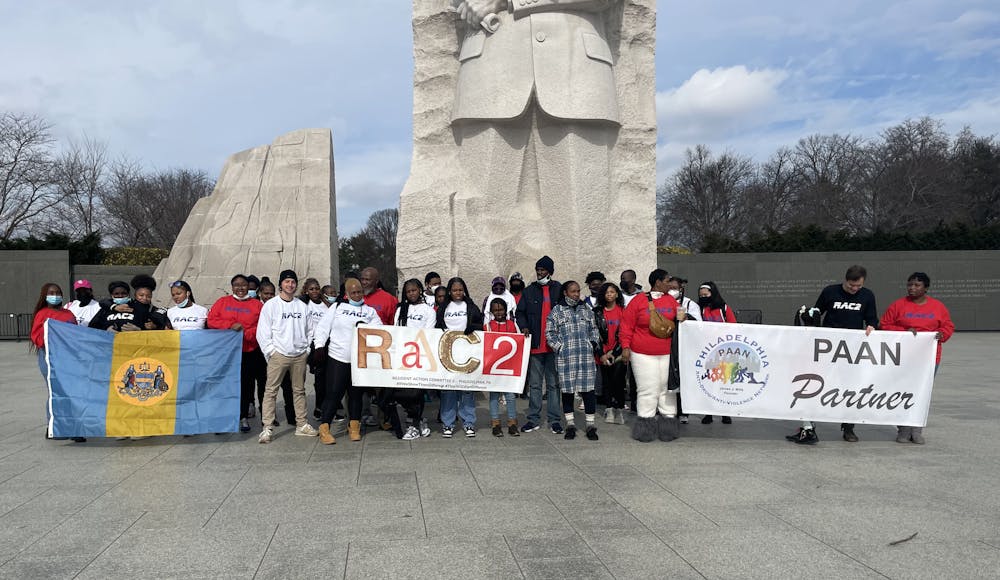
Photo Courtesy of Eli Moraru
It doesn’t only have to be Eli and Alex who are making these efforts with Penn’s neighboring communities. We can do our part, too. “Because we left Penn’s bubble, we realized [these communities] need change. And you know what, Penn students have the resources and the privilege to do it,” Eli says. People can tap into Penn’s educational resources and grant systems to secure funding for underprivileged communities. “My first thing I’d want to say to the Penn student body is to leave campus. See what Philadelphia has to offer,” he says. “Most Penn students wouldn’t walk in there, and we found a family.” They could also use more hands–on help alongside their new interns from Penn’s Nutrition Education Service Team. “So many kids are great at PowerPoint here, so we need them to update our slide decks,” they laugh. “Reach out to us, and we promise we’ll find something for you to do,” Alex says with a smile. "And we'll never say no to donations either," Eli adds.
They share a common dream: to bring TCG to every community that needs one. There are countless neighborhoods that need access to fresh ingredients. “There’s no reason we can’t be the ones to bring everyone back to the table,” they say. “Except for New York, because they’ve got bodegas,” Alex jokes.
And so, three years later, Eli and Alex are no longer alone when they stand on the street corner that once ignored them and their boxes. Instead, they’re greeted with smiles, claps on the back, and invitations to someone’s next baseball game. Everyone around them is a part of their new community: The Community Grocer.
